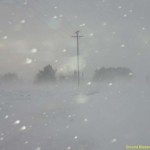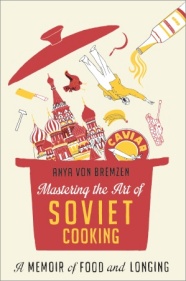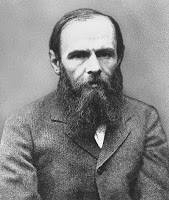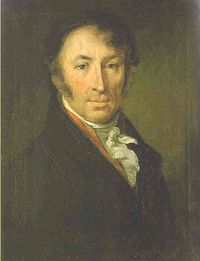As it turns out, I did not win this year’s Compass Award for outstanding English language translation of Russian poetry, awarded through the Cardinal Points journal. I did not even make the short list.
Not too disappointed, though, as it was my first entry to any such competition, and now that I am no longer in the running I can present my work to anybody out there with any interest in the Russian poetry of the Soviet period.
This year the contest asked for translations of poems by Maria Petrovykh, a poet who was a friend of some of the greatest luminaries of the early Soviet period, notably Anna Akhmatova and Osip Mandelstam; Mandelstam’s poem, Masteritsa vinovatykh vzorov, that Akhmatova called “the greatest love poem of the 20th century,” was dedicated to Petrovykh.
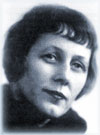
The poem of hers I chose to translate for this contest is Муза—‘Muse.’ As I had not been familiar with ther work until I learned of this competition, I decided this poem would be a good place to start as it might give a clue to what inspired her to write. It turns out that “night” was one of her muses at this time. This is not that surprising for someone who had just survived WWI, the Russian Revolution, The Russian Civil War, the “Red Terror,” unprecedented poltical, economic and social experimentation and the beginnings of Stalinist totalitarianism.
But aside from historical context, I found this to be a beautiful poem, and my humble translation a pale ghost of the real thing. As always I struggled in my efforts to balance meaning, meter, tone and rhyme. I feel convinced that sacrifices must always be made of one for another; a strict observance of the exact meaning of each word makes it impossible to convey the meter and rhyme, but departing too much from meaning for these feels like an abomination.
But sacrificies must me made.
That said, below is my translation, followed by the original:
Muse
When by mistake I let the pen slip,
Missing the inkwell, near the moon see it dip,-
To the lake of black nights in its unceasing creep,
Is stitched the overgrown inkwell with a dream from the nightingale’s keep,-
Diverse harmonies rush from the pen,
An astonishing layer of silver on them,
They are like birds, of whose touch I am afraid,
But the lines flock together and fill up the page.
I welcome you here, wild-running night,
And we have exactly one origin and plight-
We are both dark for our doubting eyes,
One homeland we share and she never dies.
I remember how you were conquered by day,
You remember how I, from the rock, broke away,
You ever from the milky paths turn aside,
In the cracks of the lines you do love to hide.
Child of a dream, sketched with nightingale’s hues,
Solitary reader, you are my muse.
I see you off, with no thanks for your time,
But in a froth of delight, I am brimming with rhyme.
1930, Maria Sergeyevna Petrovykh
translated by John Dougherty Continue reading “Maria Petrovykh’s ‘Muse’”



